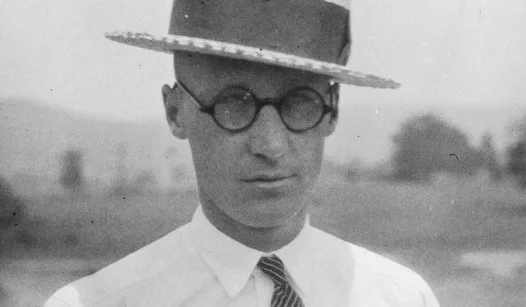The Scopes Trial of 1925, often remembered as a pivotal moment in the cultural clash between science and religion in America, is frequently framed as a battle in the so-called “war on science” led by Christian fundamentalists. However, a less-discussed aspect of this landmark case is its role in the opposition to eugenics, a movement that gained significant traction during the early 20th century.
In this article, we will explore the complexities of the Scopes Trial, its implications for both science and religion, and how it serves as a reminder of the ethical dilemmas surrounding eugenics—a topic that remains relevant in contemporary discussions about genetics and public policy.
The Scopes Trial, formally known as The State of Tennessee v. John Thomas Scopes, revolved around the teaching of evolution in schools. John Scopes, a high school teacher in Dayton, Tennessee, was accused of violating the Butler Act, which prohibited the teaching of evolution in state-funded schools. The trial quickly became a national spectacle, drawing attention from prominent figures like attorney Clarence Darrow and politician William Jennings Bryan, who represented the prosecution.
While the trial is often viewed through the lens of the conflict between evolution and creationism, it also highlighted the broader societal concerns of the time, particularly the eugenics movement. Eugenics, which advocated for the improvement of the human population through controlled breeding, was popular among many intellectuals and reformers in the early 20th century. It was often justified on the grounds of public health and social improvement, but it also carried with it significant ethical concerns and implications for marginalized communities.
Interestingly, many Christian groups, including those involved in the Scopes Trial, opposed eugenics on moral and ethical grounds. They argued that the movement’s emphasis on selective breeding and the sterilization of individuals deemed “unfit” contradicted the fundamental Christian belief in the inherent value of every human life. This opposition was rooted in a theological perspective that saw all individuals as created in the image of God, deserving of dignity and respect regardless of their genetic background.
The trial itself served as a platform for these contrasting ideologies. While Darrow defended the right to teach evolution and challenged the validity of eugenics, Bryan’s arguments often reflected a more traditional view of morality, emphasizing the dangers of scientific overreach. This tension between science and faith was not merely about the content of school curricula; it was a reflection of deeper societal anxieties about progress, morality, and the future of humanity.
As the trial unfolded, it became clear that the stakes were not just about what could be taught in schools but also about how society viewed science and its relationship with faith. The sensationalism surrounding the trial often overshadowed the nuanced debates taking place. The media frenzy depicted it as a straightforward battle between science and religion, but the reality was far more complex, involving a rich tapestry of beliefs, values, and ethical considerations.
In the aftermath of the trial, the implications of the eugenics movement continued to unfold. While the Scopes Trial did not result in a clear victory for either side, it did spark a broader conversation about the role of science in society and the ethical responsibilities that come with scientific advancement. The lessons learned from this trial remain relevant today, particularly as we navigate contemporary issues related to genetics, biotechnology, and the moral implications of scientific research.
In recent years, discussions about genetic engineering, CRISPR technology, and the potential for designer babies have reignited debates about eugenics and the ethical boundaries of scientific exploration. As we grapple with these issues, it is essential to remember the lessons of the past, particularly the importance of balancing scientific inquiry with ethical considerations rooted in our shared humanity.
The Scopes Trial serves as a reminder that the intersection of science and faith is not a battleground but rather a complex dialogue that requires careful navigation. The opposition to eugenics by many Christian groups during this tumultuous time highlights the potential for faith to inform ethical decision-making in the face of scientific advancement. As we move forward, it is crucial to foster a conversation that respects both scientific inquiry and the moral imperatives that guide our understanding of what it means to be human.
In conclusion, the Scopes Trial is not just a historical footnote in the ongoing debate between science and religion; it is a vital part of our collective narrative that informs current discussions about ethics, genetics, and the future of humanity. By revisiting this moment in history, we can gain valuable insights into the challenges we face today and the importance of maintaining a dialogue that honors both our scientific pursuits and our ethical responsibilities.
